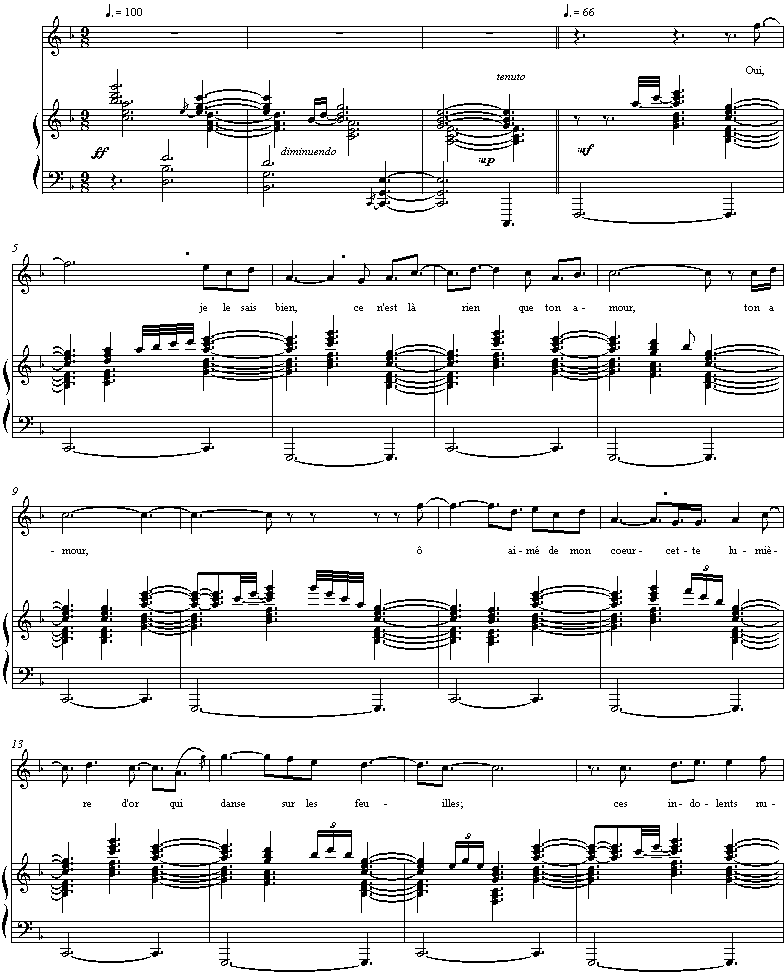Music and Texts of GARY BACHLUND
Vocal Music | Piano | Organ | Chamber Music | Orchestral | Articles and Commentary | Poems and Stories | Miscellany | FAQs
Oui, je le sais bien - (2006)
André Gide
for high voice and piano
Oui, je le sais bien, ce n'est là rien que ton amour,
ô aimé de mon coeur -
cette lumière d'or qui danse sur les feuilles;
ces indolents nuages qui voguent par le ciel,
et cette brise passagère qui laisse
sa fraîcheur à mon front.
Mes yeux se sont lavés dans la lumière matinale -
et c'est ton message à mon coeur.
Ta face, de très haut s'incline;
tes yeux ont plongé dans mes yeux
et contre tes pieds bat mon coeur.[ 4 pages, 2' 50" ]
André Gide
English interpretation by Rabindranath Tagore (1861-1941) , from Gitanjali, published 1913.
Yes, I know, this is nothing but thy love,
O beloved of my heart --
this golden light that dances upon the leaves,
these idle clouds sailing across the sky,
this passing breeze leaving
its coolness upon my forehead.
The morning light has flooded my eyes --
this is thy message to my heart.
Thy face is bent from above,
thy eyes look down on my eyes,
and my heart has touched thy feet.Composed in Nancy, France, this sweet poem of André Gide is a lyrical love song whose voice speaks out over diatonic clusters of chords in gentle progression themselves over a slow, knelling bass line. For the singer, it is recommended that the vocal line be most affirmatively sung, coloring the voice with optimism from beginning to end. The last measures' descent from the high G to the low F over several phrases is meant as a final affirmation, beyond which no more needs be said.
The score is available as a free PDF download, though any major commercial performance or recording of the work is prohibited without prior arrangement with the composer. Click on the graphic below for this piano-vocal score.

